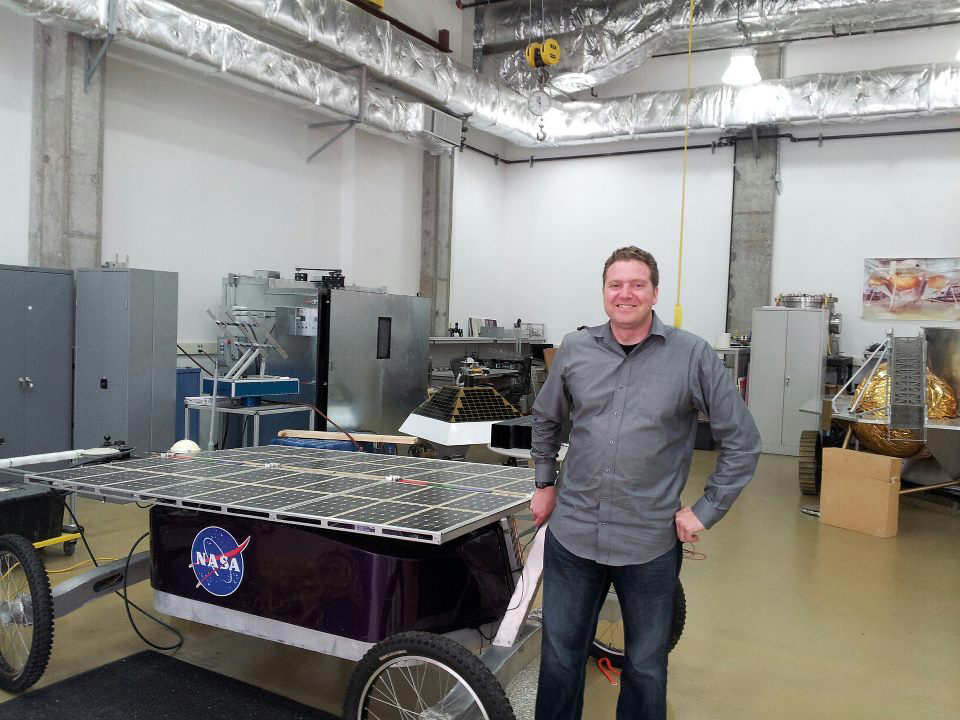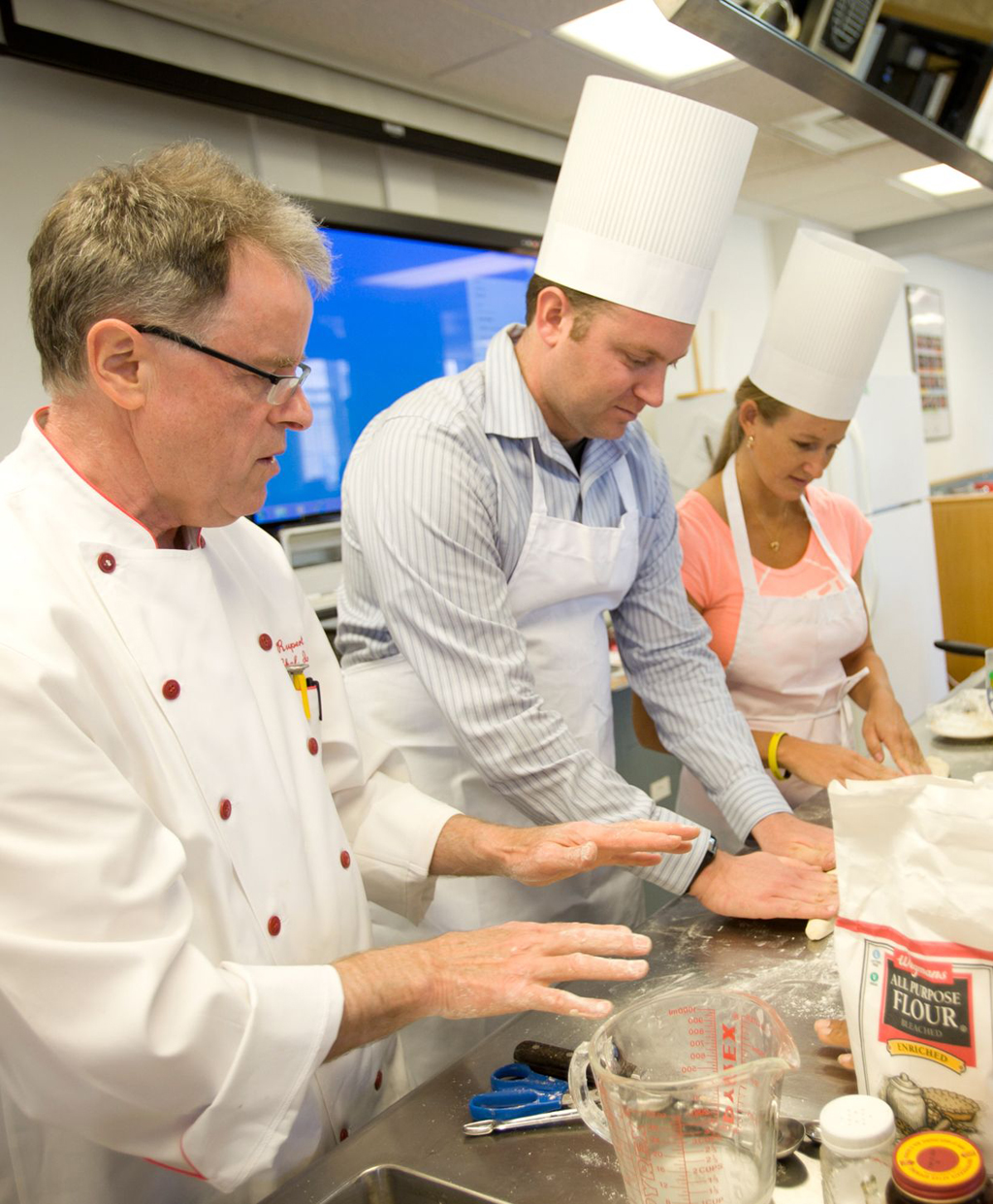NASA Experiment Will Test Both Robots and Stomachs
Byron SpiceThursday, August 2, 2012Print this page.

Robotics Institute Summer Scholar Participates in Simulated Mars Mission
Simon Engler has spent this summer at the Carnegie Mellon Robotics Institute working on robotic technology that might search for life on Mars. And next year, he'll be working on food preparation skills that may one day support life- human life- on Mars.
Engler, a Robotics Institute Summer Scholar (RISS), is one of six people selected from more than 700 applicants to participate early next year in a NASA-sponsored experiment called Hi-SEAS, or the Hawaii Space Exploration Analog and Simulation. He and his fellow crew members will spend four months on a simulated Mars mission, living and working like astronauts amidst the isolation of a Hawaiian lava field. Whenever he and the other crew members leave their special habitat, they will be suited up in space gear.
They will be testing new forms of food and food preparation strategies designed for sustaining astronauts on Mars and other deep-space missions, under the direction of researchers from Cornell University and the University of Hawai'i at Mānoa. But in addition to cooking and eating, Engler also will get the chance to pursue his interest in space robotics.
"This NASA mission is just perfect for me," said Engler, who is pursuing a master's degree in robotics at the University of Calgary. It will give him a chance to field test a number of robots and related technology, including special binoculars that produce 3-D lidar images.
During his internship this summer, Engler has been working with David Wettergreen, research professor of robotics, on a NASA-funded astrobiology project to test robotic techniques for detecting subterranean life in Chile's Atacama Desert. That's typical of the RISS program, which allows interns to work side-by-side with faculty and other members of the Robotics Institute on state-of-the-art projects.
"Students have repeatedly reported this as the best part of their academic careers and many have gone on to graduate school and industry jobs within the field," said Drew Bagnell, RISS program director. Thirty students are in the RISS program this summer.
Engler is no stranger to field tests; even before enrolling at the University of Calgary, he built and tested a surveillance robot, Prairie Dog, during a 10-month combat stint in Afghanistan with the Canadian Armed Forces.
For Hi-SEAS, Engler has had to develop new skills in the kitchen. Earlier this summer, he and the other crew members received two days of cooking lessons in Cornell's test kitchens led by Rupert Spies, chef and senior lecturer at the university's School of Hotel Administration. Spies and other Cornell researchers have been developing recipes and methods for preparing meals using the preserved foods that will be available on space missions.
Menu fatigue is a major problem for astronauts on extended missions, the researchers said. Astronauts tend to eat less, putting them at risk for nutritional deficiency, loss of bone and muscle mass and reduced physical capability. So the researchers are looking for ways to prepare foods that are tasty and nutritious, while also minimizing the use of precious energy and water.
Engler said he was surprised by what Spies was able to do with ingredients that were far from fresh. "He even found a way to make sushi," he said, adding "I have a thing for his crepes."

For More Information
Byron Spice | 412-268-9068 | bspice@cs.cmu.edu
